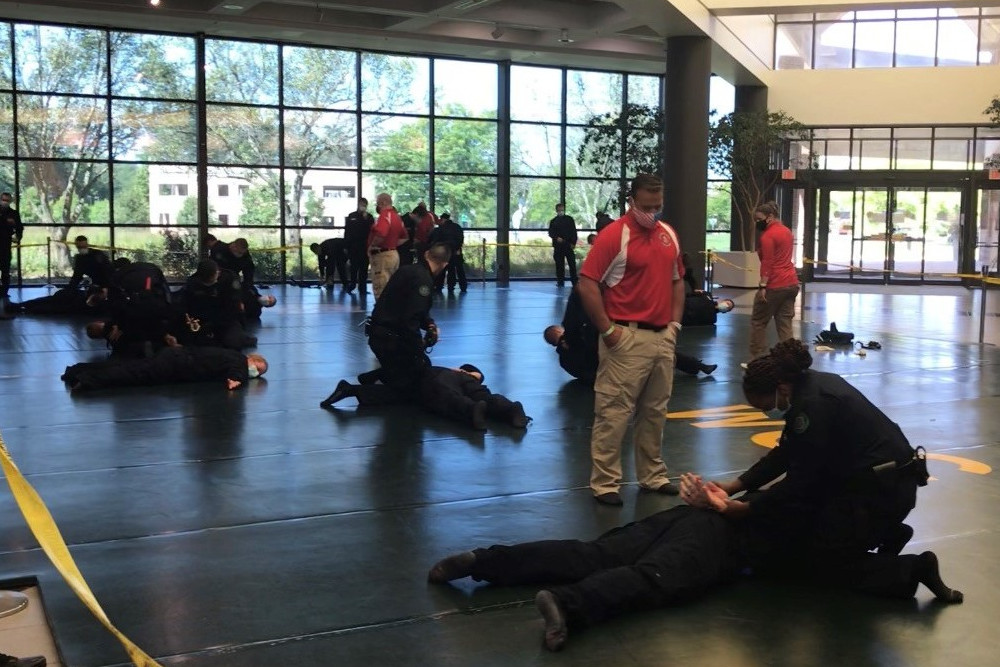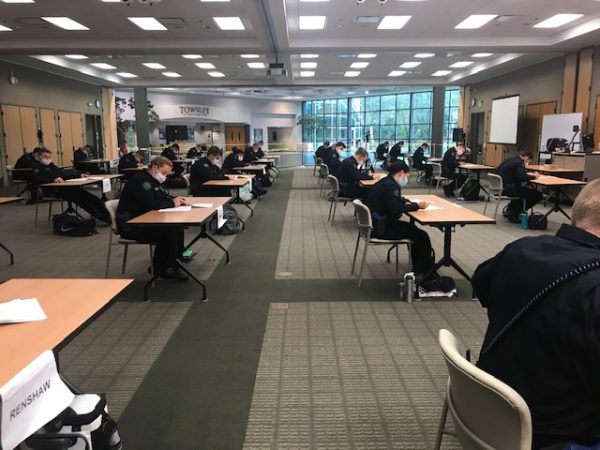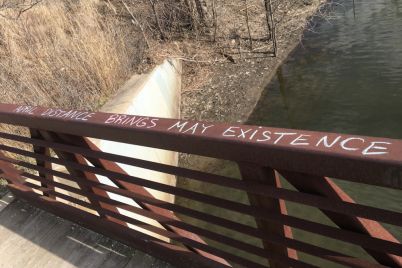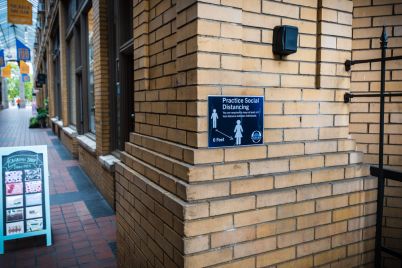
Police academy students train with one another in the converted Morris Lawrence atrium. Courtesy of Joyce Nelson VanMeter.
By Xailia Claunch
Editor
The WCC Police Academy has stayed open for on-campus learning throughout the COVID-19 pandemic and Black Lives Matter movement.
The academy has remained open with strict sanitary restrictions.
“The college has provided all kinds of cleaning protocols. Staff members are cleaning the bathrooms every half hour, sanitizations of desks, car seats, everything is sanitized,” said Joyce Nelson VanMeter, senior director of the police academy and former police officer. “We’re doing the college protocols for questionnaires, temperature screenings twice a day, anything you can think of, we’re doing it.”
The academy’s enrollment isn’t down at all. In fact, it is on an “uphill climb” according to VanMeter. “This class is the largest in the history of the WCC Police Academy. Two students have dropped because they decided this just wasn’t for them, but enrollment is at a high. We’re already getting inquiries for 2021,” said VanMeter. The academy currently has 34 students.
The training has changed a bit due to COVID. Typically officers switch training partners in order to practice with people of different heights and sizes, but now they stick with one partner throughout the program.
The atrium of the Morris Lawrence building has been converted into a training area, with large mats occupying most of the floor space, in order to aid in social distancing.
Some students felt safe with the academy continuing its training in person.
“I currently work as a security manager at Target and I am exposed to the public daily, so I would feel no different attending the academy,” said Maxim Kestrel, a former Washtenaw student who plans on returning to attend the police academy.
Others felt that entirely in-person training was too risky.
“I don’t think it’s a good idea,” said Lukas Lee, an Ann Arbor resident and WCC student. “The United States is still highly infected with coronavirus. Our cases are some of the highest. Especially the type of more hands-on things such as the academy, it’s all very close proximity.”
“I’d say that in the circumstances of training to be an officer, online doesn’t really make sense. But I wouldn’t say that in-person classes make sense now, so perhaps the best thing would have to be blended of some kind,” said Lee.

Students attend a social-distanced lecture. Courtesy of Joyce Nelson VanMeter.
The academy has had no COVID cases as of Aug. 28.
There has been a massive public outcry nationwide against police brutality following the deaths of Black men and women such as George Floyd, Breonna Taylor, Elijah McClain, Freddie Gray, Eric Garner, and locally, Aura Rosser, who was killed by officer David Ried of the Ann Arbor Police Department in 2015. Washtenaw County prosecutor Brian Mackie ruled that Ried acted in lawful self-defense, but that conclusion was not universally accepted. Ried continues to work as an officer for the AAPD.
Many activists and progressives are calling to “defund the police,” which would involve divesting some of the police department’s funding into other community resources such as social work, education, healthcare, and housing.
According to VanMeter, that doesn’t have anything to do with what goes on at the WCC Police Academy.
“What we do here is we take what the state requires us to teach, and enhance it based upon the input of advisory groups,” said VanMeter.
The academy includes some extra classes not mandated by the Michigan Commission on Law Enforcement Standards (MCOLES), she explained.
“The basic curriculum is 594 hours. We currently run at 805 hours, which is an additional 211 hours of instruction,” said VanMeter. “The curriculum that is taught is mandated by the state of Michigan. Then we add in our 800-level courses, which include unbiased policing, fair and impartial policing, officer psychological wellness, officer self-care, and the list goes on.”
VanMeter explained that simply graduating the academy doesn’t mean that an officer has completed their training.
“When officers leave us here, they are eligible for hire because they have had the basic level of training. They continue that training at the agencies. This is a job where you constantly need to train. Anybody who’s in it and isn’t constantly looking ‘what don’t I know, what should I be seeking for?’ is doing themselves a disservice.”
Student reactions as to whether or not police go through enough training were mixed.
“I do believe some of the training should go over social tensions if they are not already,” said Kestrel. “I am a big realist and I acknowledge that there are very evil people in the world, and no matter your race religion, and beliefs, we are in need of law-enforcement.”
“We don’t need more cops in the slightest,” said Lee. “Ours aren’t even able to be decently good and abuse their power much too often. There needs to be much more regulation in the means of becoming an officer and it should not be as powerful of a position as it is.”


